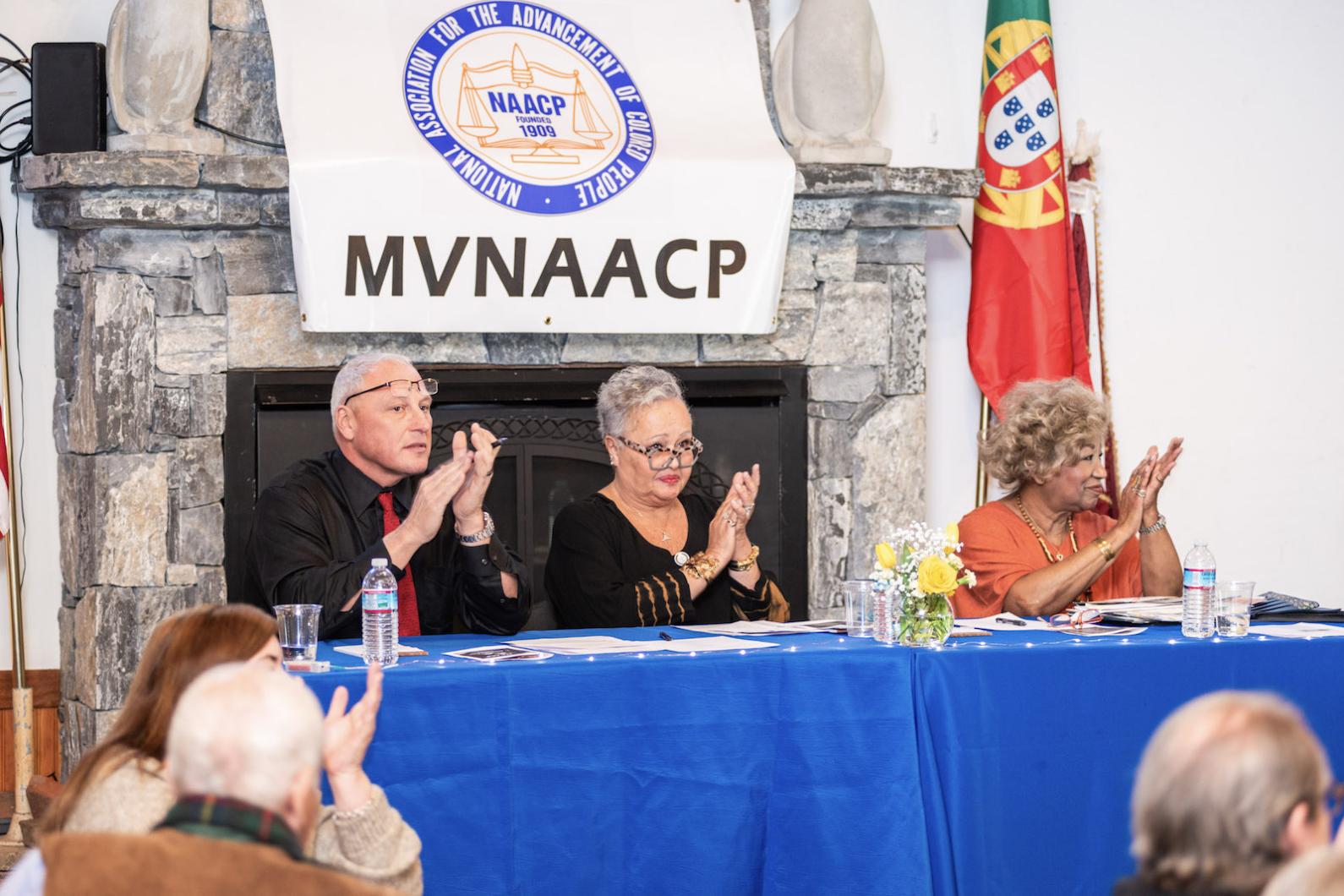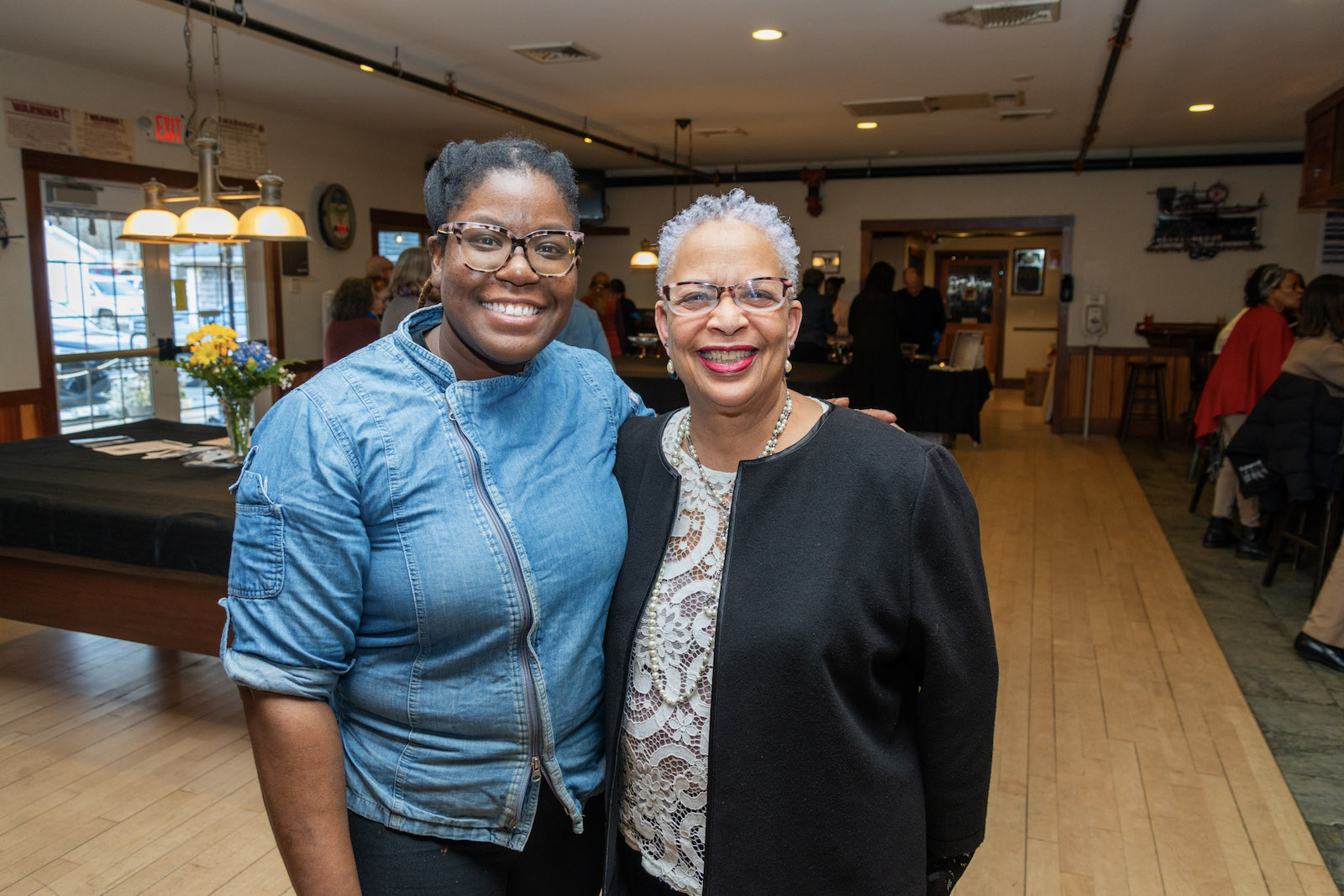The Martha’s Vineyard branch of the NAACP celebrated the life and legacy of Dr. Martin Luther King Jr. and its 60th anniversary at the annual MLK Membership Luncheon at the P.A. Club Monday afternoon.
The event, organized by Martin Luther King Jr. Day committee chair Grace Robinson, invited members old and new to look back at the chapter’s history and highlighted the challenges the Island still faces when it comes to racial equality.
The event also came at a moment of rejuvenation for the social justice organization. After three years of video conferencing due to the pandemic, the organization will hold its first in-person and online hybrid meeting this Saturday.
Branch president Toni Kauffman opened the luncheon with an entreaty to educate oneself on the history of Dr. Martin Luther King Jr. and the civil rights movement of the 1960s — the same movement that led to the founding of the NAACP Martha’s Vineyard chapter on Nov. 22, 1963. The movement cannot move forward, she said, unless it looks back.
Ms. Kauffman also stressed that even after 60 years, the chapter’s work — to change hearts and minds within the community — remains as relevant as ever.
“Whatever affects one directly affects us all indirectly,” she said. “There’s much work to be done on the Vineyard, and I do mean that literally — on the Vineyard.”
The lunch was catered by chef Canieka Fleming, owner of Loud Kitchen in Oak Bluffs, and featured a panel of Dr. Lorna Andrade, Gretchen Tucker-Underwood, and former NAACP president and Oak Bluffs police chief Erik Blake, moderated by committee member Jennelle Gadowski. Each speaker was united by a shared concern for the racial injustice and prejudice still present on the Vineyard and in the nation today.
Dr. Lorna Andrade drew upon her 40-year career as an educator and medical professional to urge members to take their health seriously, particularly in areas that disproportionately affect the Black community.
She also reminded members that as recently as the 1920s, Black people could not buy property in Edgartown, and Black summer visitors faced discrimination from residents for decades beyond.
“Read and learn the true history of Blacks on the Island,” she said.
Ms. Tucker-Underwood, prompted by her father who had been president of the NAACP Boston branch, began her career as an activist at 13 years old. Now, at 80 years old, she said her work with the NAACP is more necessary than ever. In the past several years, she said the organization has helped educate local businesses after incidents of racial insensitivity.
She shared an incident two years ago at the Chilmark Community Center in which a young Black boy had been tied up by two young white boys. She also questioned the intentions behind a proposed Edgartown bylaw that would limit events in private residences, pointing out that the legislation had been borne in response to a Black female business owner’s parties this past August.
“Racism exists,” Ms. Tucker-Underwood said. “It’s alive and well until we step up and do something about it.”
“‘I’m woke’, doesn’t work anymore,” she continued. “Now it’s, ‘I’m woke, I listen and I act.’”
Mr. Blake shared some of the challenges he faced bridging communities as a police chief and racial justice leader, namely his involvement in the movement to remove a Confederate plaque on the Island’s Civil War memorial.
He added that his former leadership role in the NAACP came at the encouragement of its members.
“These ladies pulled me in,” Mr. Blake said with a laugh. “You can’t say no to them.”
The panel ended with a question from Ms. Gadowski — a question extended to all of its members as the branch begins a new chapter and seeks to revive its membership post-pandemic: “In today’s culture’s where people are pushing back against diversity, equity and inclusion, how do you remain steadfast in the work that needs to be done?” she said.
The panel, with a century of racial justice work between them, collectively groaned at the weight of the question.
“You just got to keep educating people,” Dr. Andrade said.








Comments (1)
Comments
Comment policy »